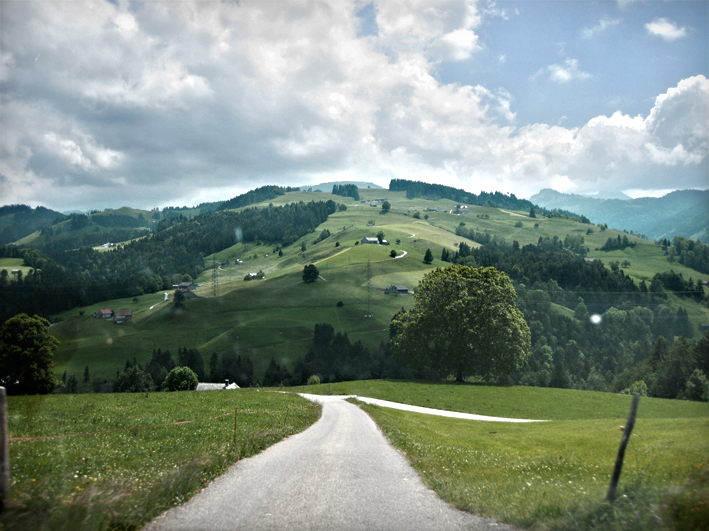
You are that boy. The boy I met in Switzerland while herding my siblings up the long, steep hill to the closest school cafeteria for our free lunch.
It took me exactly two hours. Two hours for most Swiss children to go home to a hot lunch and a motherly kiss. Two hours for non-Swiss me to make my way across town, pick up my brother and sisters at their school and coax them all up that hill, to get them fed, then back down to drop them off and then catch a city bus to my own school, and my breath, if I have money that day.
You are that Swiss boy, the sandy-haired, blue-eyed boy herding his own brother, who asked me one day: “You’re going to the Bellevaux cafeteria?” Though of course you asked it in French. You were walking up that same hill, on my left and slightly behind me, so that I had to turn my head to look at you from under my bangs, which needed to be cut.
You too had bangs, and moved them expertly with a flick of your head, closing your eyes slightly while posing your question; your unconscious gesture temporarily sweeping away the low-level, but permanent, shame of walking up that hill. Because the question was really: “Are you poor like me?”
“No!” I yelled with my eyes, while my mouth sighed a small “oui.” Before I turned my head away and willed you and that hill out of my life.
And now I am married to you. You are that boy. Though you are not that boy in that you do not speak French, do not live in Switzerland, do not need free school lunches. You are that boy because you too walked up that hill, or another hill, but a steep, long hill nonetheless. And because we are both still trying to get off that hill. Though this time, I wait for you, and I look and smile at you, and my then reluctant “oui” is now a full “yes.”
Eva Roa White’s fiction and non-fiction have been published in Page 47 Online Anthology, Transnational Literature, disClosure, Natural Bridge, and Marco Polo.
Photo by Flickr Creative Commons user Lorne Covant




